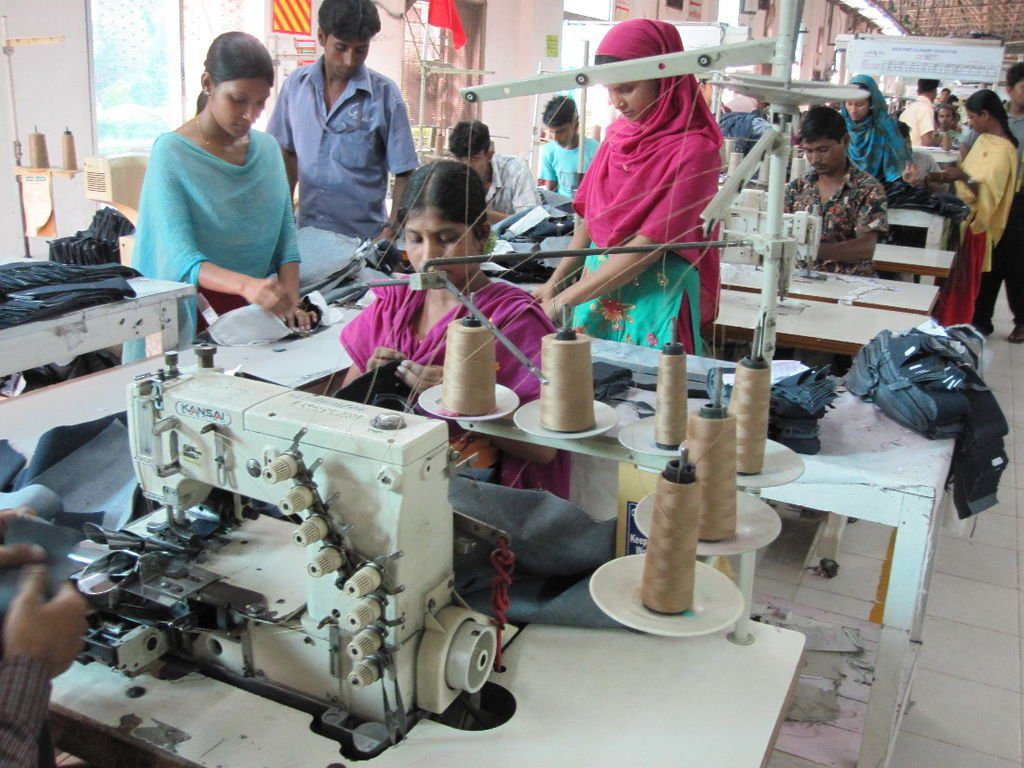Micro or macro-systems makes no difference; the outbreak of the Coronavirus pandemic is leading us all to reflections and questions about the aftermath, because if we are still in an emergency now, there will come a time when we will all have to start again and nothing will be as before.
Even the fashion industry, with its relocations and the often savage exploitation of the poorest economies of the planet, will have to review certain mechanisms, starting from the supply chains involving disadvantaged producers and workers who do not enjoy the same conditions of social protection as those who operate in highly industrialized countries.
Ethical fashion operators are also considering the problem and in this regard I have found several interesting interventions on the subject, including that of Simone Cipriani, a UN official who on behalf of the International Trade Center has created and is responsible for the Ethical Fashion Initiative, a program that employs micro-artisans from the most disadvantaged areas of the world in high fashion production. Cipriani’s project consists of putting some artisans, 98% women in marginal situations, in a position to become suppliers of the big fashion brands, helping them organize themselves in cooperatives and creating local hubs that interface with international buyers. At the same time, the initiative aims to spread the principles of ethical fashion around the world.

A recent contribution by Simone Cipriani in the online magazine Drapers explained the effects that this emergency could produce, and in fact it is already doing, on the functioning of supply chains on a global level.
In Cipriani’s words, unfortunately I found some thoughts that I made myself when the epidemic began to spread, blocking the work of companies and factories; but if we have so many problems here, in our hyper-industrialized world, how it will be in the poorest areas of the world, with the workers crowded hours and hours in those textile factories where fires often break out because of the lack of minimum conditions safety?
In practice they will not be able to do anything except continue working, going to further inconvenience and, in many cases, to a high mortality rate. So explains Cipriani: “While brands and retailers in the western world scramble to cope with the business implications of the coronavirus pandemic and impending recession, the social and human fabric of whole communities in less fortunate settings is set to be literally wiped out. Order cancellations could see supply chains grinding to a halt in developing countries. The alarming consequences could be increases in migration, terrorism, human and drug trafficking as the delicate social structure of those communities tears apart.”
If the conditions were already precarious before, and how long we talked about here in the blog also dedicating ample space to the beautiful documentary ‘The True Cost‘ on the conditions of garment workers exploited by the western fashion industry, in particular the so-called ‘fast fashion’ , now they will only get worse and a weak health system combined with starvation wages will certainly not be able to cover the needs of workers and their families. Let’s say it is a snake that eats its tail: without a subsistence wage and adequate health care, the virus can only spread, making mitigation measures of the pandemic almost impossible.
Simone Cipriani says: “The pandemic has heavily hit brands and retailers who were about to market their summer collections. Huge rents for prime retail spaces are being paid for empty stores. Online retail is suffering as well: tons of product is piling-up in fulfillment centers waiting for trade flows to pick up again. This has a whiplash effect all the way along the value chain. As a result, unemployment rises and uncertainty spreads, everywhere. If the lockdowns last more than two months, the industry will be forced to undertake more copying measures: pressure will be put on producers, often based in the weaker countries. Initially, they will have to play catch-up. Product development and production lead times will be shorter than ever. There is a danger that vulnerable employees will work even if sick, leading to a second wave of infections. If the main markets stay shut for longer orders will be cancelled and people all along the chain will lose their jobs.”
It is not a good prospect. But what solution is there? Cipriani’s answer is simple and complex together: collaboration, the same that the whole world is trying to put in place to deal with a situation that has never happened before. “We must work together to help all actors in the chain survive the economic and social shocks that the pandemic will cause. Brands, retailers and large manufacturers will have to work together to support their smaller and weaker partners so that everyone can survive. “
Because that’s actually what we’re talking about. Survival.
















